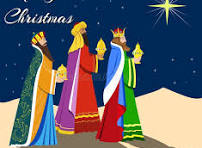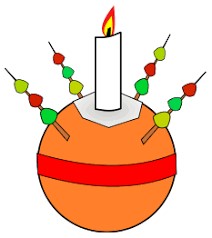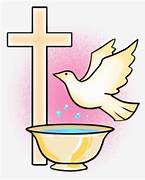A Tribute to Pope Francis

This week people all around the world are mourning the death of Pope Francis (Jorge Bergoglio).
And some will be quietly glad he is no more. For Francis, living and preaching a Jesus-of-the-outsiders, was offensive to those who like the certainty of unchanging fundamental doctrines and moral stances, and who like the church to be separate from politics, offering compassion to all sides, but not taking aside. For those offended by him, whether religious or political leaders, believe that in times of change and unrest certainty and separateness is best.
And the details of what gave offense? Well, from his choice of living quarters, personal wardrobe, having a papal ring made of silver instead of gold, to making women full members of the governing departments in the Roman Curia (with one H.O.D. being a woman), to blessing same-sex couples and advocating for decriminalization of homosexuality, allowing divorced and remarried Catholics to receive communion, to his criticisms of trickle-down economics, climate change deniers, the death penalty, anti-immigrant policies, and the ongoing Israeli military killings in Gaza.
Maybe Gaza is a good place to start. At 7 p.m. every night, even when he was very sick, Francis would make a phone call to the church of the Holy Family in Gaza. More than 300 Palestinians have sheltered at the church since the war in Gaza began in October 2023. "He would ask us how we were, what did we eat, did we have clean water, was anyone injured?" a spokesperson said. "It was never diplomatic or a matter of obligation."
And Francis didn’t just make a phone call to Gaza each evening. He made lots of phone calls to people and politicians of influence, speaking out on behalf of the vulnerable and suffering, calling for an end to the Israeli violence and occupation at a time when other world leaders seemed to have acclimatized to Benjamin Netanyahu’s genocidal brutality or supported it.
Some in the Queer communities rightly point out that he did not lead the Catholic church in an outright endorsement of non-heterosexual people and their legal relationships. Yet, when Francis, in the first year of his papacy (2013) said, with regard to queer people, “Who am I to judge?”, it was (and I’m quoting Fr. Jim McDermott[i]) “the first time that I ever heard a church official speak - not behind closed doors but publicly - of us (Queer folk) in a kind or accepting way. And looking back, I think it was the first moment I considered the possibility that being gay in the priesthood or in life truly was okay. It turns out, no matter what you tell yourself or your friends tell you, when you live and work in an institution that tells you to keep your identity a secret and scapegoats you anytime it faces a scandal, there’s some part of you that just isn’t quite sure whether you are actually good.”
Note, ‘Who am I to judge?’ was a radical departure from his predecessor John Paul II’s 1986 letter calling homosexual acts “intrinsically disordered” or his more recent predecessor Benedict XVI’s reinforcement of bans on gay seminarians.
Over the course of his papacy Francis continued to build on that simple statement of toleration. As with other groups who find themselves on the margins or outcast, Francis has reached out to LGBTQ+ people time and again, in texts, on the phone, in audiences abroad, and at the Vatican itself. Fr Jim goes on, “while the United States government has launched its disgusting erasure of transgender people, Francis has repeatedly welcomed trans people. In fact, in 2023,he announced that trans people can be baptized and become godparents. A few weeks later he said that LGBTQ+ couples who have been married civilly can receive a blessing from clergy (though not in a formal liturgy).”
I’d like to note two things here. Firstly, the simple sentence “Who am I to judge?” radically deconstructs the world of theological and moral certainty, and gives institutions built on certainty the wobbles. That sentence throws open the possibility that God might not judge how we judge? It throws open the possibility that those beyond the moral margins – whether that be violent prisoners, sex workers, adulterers, abusers – might not be as damned as wish them to be. And Francis’ actions, like going year after year to wash, on Maundy Thursday (with all the significance of that act on that day), the feet of prisoners, women and men, both underscores that simple sentence and well as underlines his deep and abiding compassion for the vulnerable and suffering.
The other thing I’d like to note, is that the longer a denomination has existed, the more deeply entrenched become its patterns and ways, and more difficult it is to bring change. Even if you, as a pope, use all the authoritarian muscle at your disposal, the 1.4-billion-member Roman Catholic Church is akin to turning a supertanker. Change comes very slowly. There are many vested interests, personalities, cultures. And some people are good at patiently navigating all that towards change, or doing the opposite.
My guess is Francis brought change first by public actions, rather than theological treatise. Actions like a phone call to Gaza; or foot washing prisoners instead of prelates; or on his first official trip of his papacy visiting the tiny Italian island of Lampedusa, where thousands of refugees waited in camps. There, with small wooden refugee boat serving as the altar, he led the Mass. In all these actions he’s signalling priorities and care (and purposeful political critique of those who would disregard the vulnerable). And I suspect such signalling brought cardinals and others who were enthusiastic about these priorities to his notice, just as it did with those who weren’t.
His other area of change was appointing people committed to the Jesus-of-the-outsiders into institutional positions of influence and power. Like the 110 cardinals he appointed, and who will form the majority in choosing his successor.
Francis is immensely attractive to people both within and beyond the Roman Catholic Church. Commentators and clerics use words like ‘humility’ and ‘servanthood,’ which are not incorrect. But I think his actions signal, and arise from, not so much ‘servanthood’ but a solidarity with fellow human beings. He felt for the suffering, wanted suffering to cease, and tried his best to both comfort the sufferers and influence the wielders of policies and wealth that give rise to suffering. His actions weren’t so much political alignment but human alignment, not religious (or Catholic) alignment but a oneness with all who suffer from discrimination, poverty, war, and greed. He was aligned with the Jesus-of-the-outsider.
======
The text for today, the same text for every first Sunday after Easter, is that of ‘Doubting Thomas.’ While I don’t intend to spend long delving into this story(found only in John’s Gospel), I think we should remember that a re-embodied back-from-the-grave Jesus was not a means of proof, then or now, of a supposedly historical event (the resurrection). Rather the story raises questions of meaning and future action.
Or, as the movie Conclave (I thought it appropriate that I watch it again last night!) puts it, when one Cardinal points to the future saying: “We seem concerned only with ourselves, with Rome (Jerusalem? Auckland?), with this election (who is the leader?), with power. But these things are not the Church. The Church is not a tradition. The Church is not the past. The Church is what we do next.”
What do we do next? And my suspicion is that for the community of St Thomas they followed the scars in his hands (note this is the only text making a thing of the scars). They followed the scars, like Jesus-the-outsider and Pope Francis, to where people were suffering and vulnerable.
You see, literal or liberal or whatever beliefs around Easter don’t matter an awful lot. It’s what we do next that matters. If we use our beliefs to say that we are better than our neighbour [“we are of the true faith”], or condemn our neighbour [“you are going to hell”], then we reap the consequences. If however our beliefs lead us, in humility, to saying most things about God are very subjective, so we might be right or not, and what matters is how we treat scarred people and the scarred earth, then we will reap different consequences.
Pete Rollins makes a similar point when he says that to believe in the resurrection is to participate in an insurrection. Or more simply he says, “We are the resurrection.” Resurrection is the something we do next. Rollins says, “I affirm the resurrection when I stand up for those who are forced to live on their knees, when I speak for those who have been silenced, when I cry for those who have no more tears left to shed.”
And resurrection is something we do not alone but by joining with others.
A word about joining with others. One of the more radical things Francis taught and did was to extend his understanding of inclusivity beyond the Church’s walls to embrace other faiths in a way that was unprecedented. During his 2024visit to Singapore, Francis spoke at an interreligious youth meeting, saying :“All religions are paths to God. I will use an analogy: they are like different languages that express the divine. But God is for everyone, and therefore, we are all God’s children. ‘But my God is more important than yours!’ Is this true? There is only one God, and religions are like languages, paths to reach God. Some Sikh, some Muslim, some Hindu, some Christian.”
This wasn’t just rhetoric; it was a theological earthquake. Critics, including conservative Catholics like Bishop Joseph Strickland, called it heresy, accusing Francis of undermining Christ’s unique role in salvation. Compared to his predecessors, Francis’s approach was revolutionary. Benedict XVI, for example, asserted the Catholic Church’s unique role in salvation and described non-Christian religions as “gravely deficient.” Francis, by contrast, leaned into Vatican II’s Nostra Aetate, which recognized the “ray of Truth” in other faiths. He went further, practicing what he preached through gestures like signing the 2019 Document on Human Fraternity with Grand Imam Ahmed el-Tayeb, promoting peace across faiths.
Francis’s statement ‘all religions are paths to God’ suggests that all religions, like dialects, express the same divine reality in their own way. He challenged the tribalism of institutional religion, urging us to see God in the stranger, the outcast, and even the nonbeliever. For many stuck in their own brand of theology this is what’s next.
And lastly, and what’s next for all humanity is the survival of our home, planet Earth. As Francis said, “The Earth, our home, is beginning to look more and more like an immense pile of filth”. He also offered a prayer, which on this Sunday closest to World Earth Day (22ndApril) I will now lead us in:
…God, you are present in the whole universe
and in the smallest of your creatures.
You embrace with your tenderness all that exists.
Pour out upon us the power of your love,
that we may protect life and beauty.
Fill us with peace, that we may live
as brothers and sisters, harming no one.
O God of the poor,
help us to rescue the abandoned and forgotten of this earth,
so precious in your eyes.
Bring healing to our lives,
that we may protect the world and not prey on it,
that we may sow beauty, not pollution and destruction.
Touch the hearts
of those who look only for gain
at the expense of the poor and the earth.
Teach us to discover the worth of each thing,
to be filled with awe and contemplation,
to recognize that we are profoundly united
with every creature
as we journey towards your infinite light.
We thank you for being with us each day.
Encourage us, we pray, in our struggle
for justice, love and peace.[ii]
[i] https://sojo.net/articles/opinion/pope-francis-knew-i-belonged
[ii]LAUDATO SI’ OF THE HOLY FATHER FRANCIS ON CARE FOR OUR COMMON HOME




